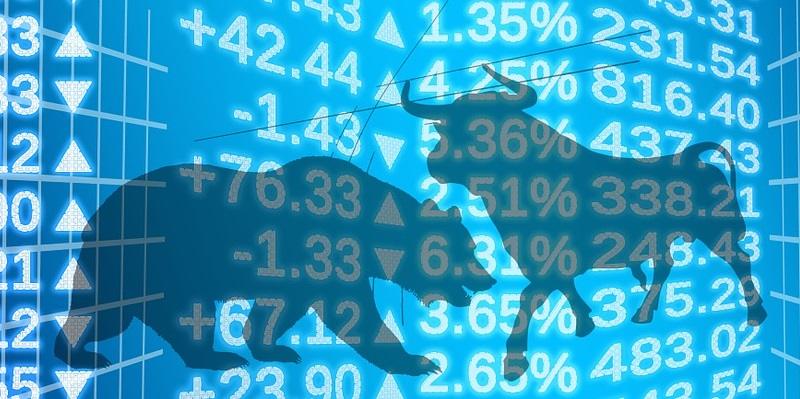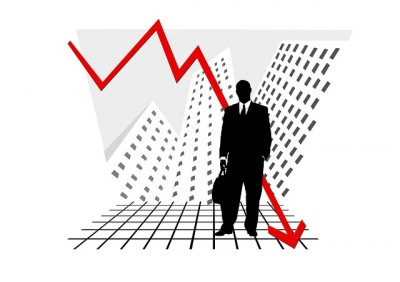Dec., 16, 2016
NEW YORK — Despite all the optimism generated by the election and recent stock market rally, there remain many signs the U.S. economy is in big trouble.
In fact, there are several good reasons to believe that a downturn or even a major economic crisis is right around the corner. Here are nine reasons why the United States might be on the verge of a major economic crisis.
1. The strong U.S. dollar. It may be hard to believe, but a strong dollar can create major problems for the U.S. economy. The dollar is at an eight-year high against the Chinese yuan (six yuan to one dollar), which makes Chinese goods cheaper on the world market than American. This increases the price of U.S. exports, such as agricultural goods. Some U.S. manufacturers may have to cut production and eliminate jobs because of lower exports. Another effect is that there will be less investment in the U.S., because investors can buy more in other nations with cheaper money.
2. Higher interest rates. Much of the recent economy recovery has been fueled by lower interest rates, but rates are suddenly climbing back. The rate on a 30-year fixed mortgage was 3.54 percent in September and 4.13 percent in November. Higher interest rates means fewer mortgages, less new construction and fewer jobs. It also means less business activity because it will be more expensive for businesses to borrow money. That can translate into fewer jobs and less demand for raw materials.
Be Prepared! Store An ‘Emergency Seed Bank’ For A Crisis Garden
3. Inflation. The rate of inflation in the US doubled between July and October. Inflation was .8 percent in July but rose to 1.6 percent by the end of October, the U.S. Bureau of Labor Statistics reported. One factor driving inflation is the strong U.S. dollar. Inflation can affect interest rates because the Federal Reserve might raise them in order to stop inflation.
4. A new real estate bubble. Average home prices in the U.S. hit a record high of $191,780 in September, the Corelogic Case Shiller 20 City Home Price indicates. Prices have not been that high seen since July 2006, right before the beginning of the financial crisis. The situation is worse in certain cities such as Seattle and Denver. Home prices in Seattle have increased by 11 percent over the past year, creating a serious housing shortage.
5. Technological unemployment. Large numbers of jobs are being lost to digital processes, automation and robots. Walmart, America’s largest private employer, is eliminating 7,000 accounting positions in its stores. Those employees used to count cash and process invoices in the back office. Now the cash will be counted by machines and the invoices will be processed by a computer at Walmart’s head office. Many other employers will follow suit as robots and computer algorithms do more jobs such as driving trucks cheaper. For example, Uber recently tested a semi that drives itself.
6. The student loan crisis. Americans owe $1.2 trillion on student loans, but payments are only being made on 40 percent of those obligations. News reports indicate that many younger people are putting off buying things like homes and cars because they need all their money to pay off loans. Others are even forgoing marriage and children because of the debt.
7. Wage and income stagnation. Household incomes for at least 50 percent of the U.S. population (around 117 million people) have not increased since 1980, the Washington Center for Equitable Growth reported.
8. The mass closing of stores. Macy’s has plans to shutter 100 of its department stores. Sears, which owns Kmart, closed 80 Kmart stores in July and has plans to shut down another 64. Walgreens might close up to 500 stores. There is speculation that Sears Holdings might declare bankruptcy or shut down completely next year. That company operates 1,687 Sears and Kmart stores.
9. The public pension crisis. State and local governments owe workers and retirees $4.798 trillion in pension obligations but have only $3.7 trillion in assets to cover that bill. To make up the $1.91 trillion they will either have to cut pension benefits or government services.
Americans had better be ready for economic turmoil.
Do you agree the economy is in trouble? Share your thoughts in the section below:
 Off The Grid News Better Ideas For Off The Grid Living
Off The Grid News Better Ideas For Off The Grid Living





